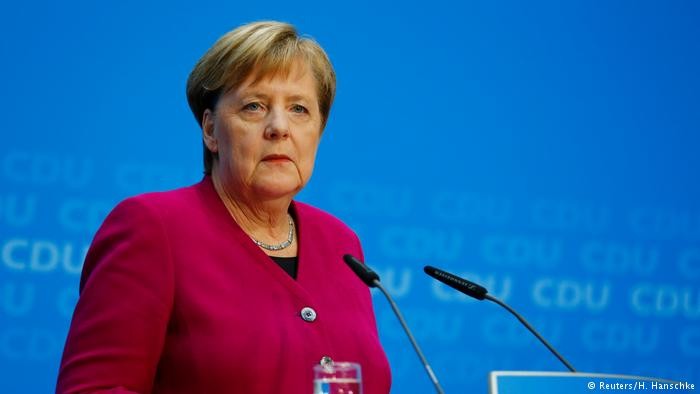(VOVWORLD) - German Chancellor Angela Merkel says she will step down as Chancellor in 2021 and not seek re-election as leader of the Christian Democratic Union of Germany (CDU), a center-right Party in December. What will German politics become without this powerful woman?
 German Chancellor Angela Merkel says she will step down as Chancellor in 2021. German Chancellor Angela Merkel says she will step down as Chancellor in 2021.
|
Chancellor Merkel made the announcement following recent election setbacks for the CDU and its national coalition partners, the Christian Social Union (CSU), in the states of Hesse and Bavaria.
A foregone result
Angela Merkel’s decision comes as no surprise. Her prestige and that of the CDU have declined since the Federal election in September, 2017. Although she remained as Chancellor for a 4th term and the ruling CDU and CSU coalition holds a majority in the parliament, their election totals were the lowest in 70 years. Other nationalist parties made strong gains, and the far-right AfD party won seats in the parliament for the first time.
Analysts forecast an unstable period in German politics. As leader of the CDU since 2000 and Chancellor of Germany since 2005, Ms. Merkel has consistently ranked first in the list of the most powerful women in the world. Because Germany is the EU’s biggest economy, Ms. Merkel is seen as the leader of the European Union.
Her open-door policy during the migration crisis in 2015 made her person of the year in Time magazine. It also marked the beginning of her political decline. Over more than 1.5 million migrants have come to Germany since 2014, causing the CDU lose many conservative voters.
Future of Germany and the EU
Although Chancellor Merkel has said her decision is an opportunity for Germany to turn a new page, analysts forecast problems for German politics.
When Ms. Merkel is no longer the CDU’s leader, her voice on the government policy will weaken. When the coalition party dissolves, an early election will be held and she might have to step down before her fourth term ends.
The public is wondering who will replace Chancellor Merkel. The end of the “Merkel era” and its stability puts at risk Germany’s future. Merkel’s open-border policy for migrants was strongly criticized for weakening Germany’s social structure and stoking cultural and religious differences. Voters have also chafed under the Federal government’s austerity policy.
Meanwhile, the US’s trade protection policy, Russia’s tough sanctions, and the EU’s division have challenged Germany as leader of the EU.
The stability of Germany and the EU will be threatened by Ms. Merkel’s departure. The rise of populism in Eastern Europe and among Mediterranean countries and the failure of the Swedish Social Democratic Party raise questions about Europe’s future.